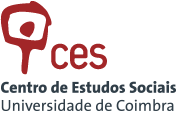Seminário
The Social Construction of Integration at EU Level: Struggles for the Meaning, Technologies of Agency and (Apparent) Depoliticization
Luca Sebastiani (Universidade de Granada)
13 de junho de 2013, 15h00
Sala 1, CES-Coimbra
Abstract
The author will discuss the main datas emerging from his Ph.D. research on the “European Integration Framework”, a set of soft-law instruments recently established by the EU in order to facilitate the integration of non-EU nationals.
The theoretical framework is based on the "anthropology of policy", on the Foucauldian concepts of “government” and “governmentality” as well as on the later developments coming from the so called “governmentality studies”. This seminar will address the following questions:
- how the hegemonic concept of integration is socially constructed at EU level as the result of a "struggle for the meaning" undertaken by a whole set of situated actors -often entailing processes of inclusion/exclusion and of construction of the difference;
- how policies strive to align governmental goals with individual subjectivation processes;
- Finally, how the increasing operationalisation and tecnification of "integration" entails an apparent removal of its political content, being the first consequence that of making invisible the struggles and experiences of the subjects supposedly addressed by the aforementioned policies, that is, migrant populations.
Bio
Luca Sebastiani (University of Granada) holds a Graduate degree in Political Sciences by the University of Bolonia (2006), a Master in Migration Studies, Development and Social Intervention by the Universities of Almería-Granada-Huelva (2009) and DEA in Social Anthropology (2010) by the University of Granada. Currently holds an FPU Contract at the Department of Social Anthropology, University of Granada. He's finishing his PhD thesis on the European Integration Framework from the perspective of governmentalities and the anthropology of policies (directed by Professor Aurora Álvarez Veinguer).
Nota: Activity within the research group Democracy, Citizenship and Law (DECIDe)

